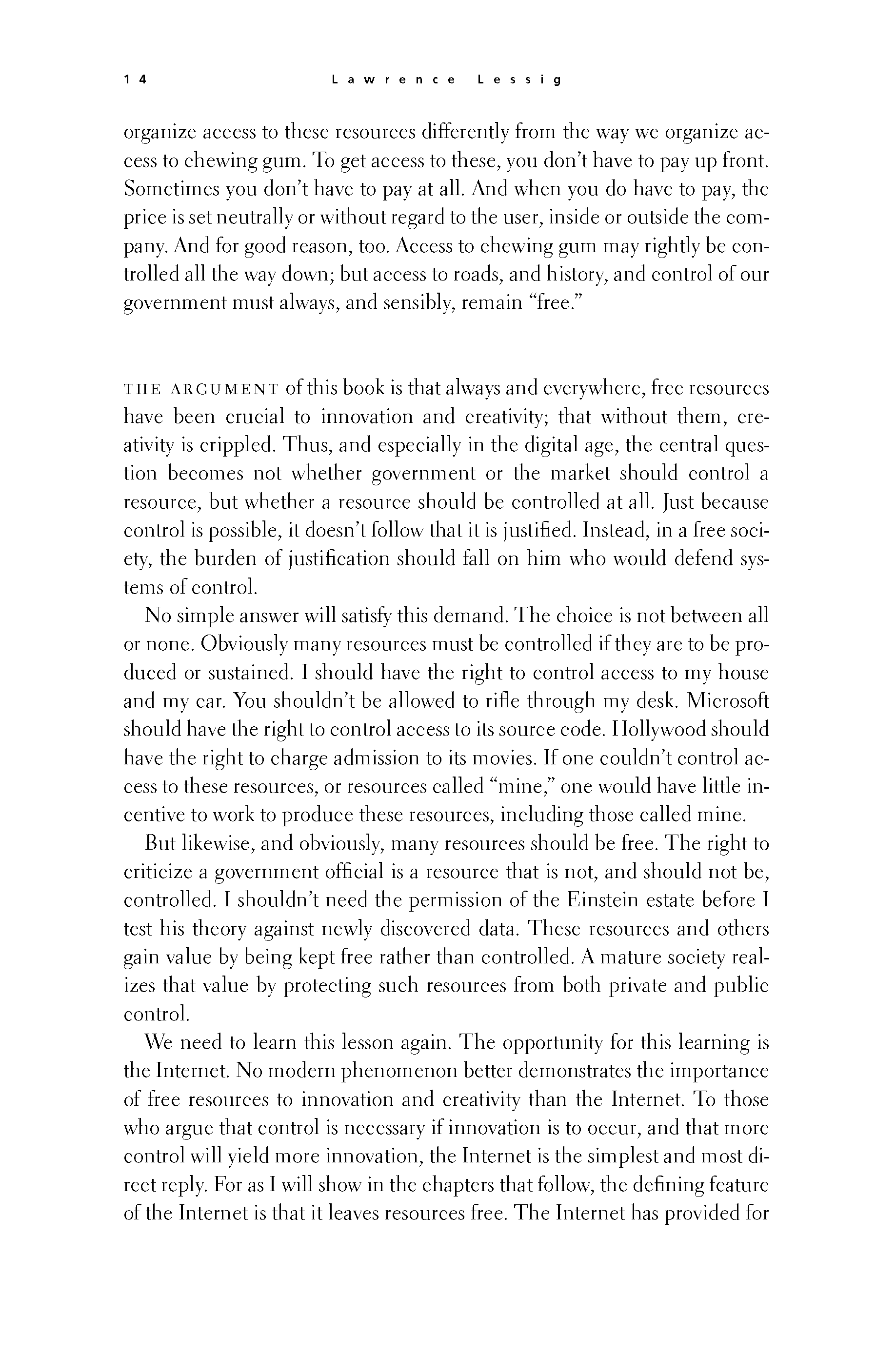 p013 _
-chap- _
toc-1 _
p014w _
toc-2 _
+chap+ _
p015
p013 _
-chap- _
toc-1 _
p014w _
toc-2 _
+chap+ _
p015
organize access to these resources differently from the way we organize ac-
cess to chewing gum. To get access to these, you don't have to pay up front.
Sometimes you don't have to pay at all. And when you do have to pay, the
price is set neutrally or without regard to the user, inside or outside the com-
pany. And for good reason, too. Access to chewing gum may rightly be con-
trolled all the way down; but access to roads, and history, and control of our
government must always, and sensibly, remain "free."
///\\\
The argument of this book is that always and everywhere, free resources
have been crucial to innovation and creativity; that without them, cre-
ativity is crippled. Thus, and especially in the digital age, the central ques-
tion becomes not whether government or the market should control a
resource, but whether a resource should be controlled at all. Just because
control is possible, it doesn't follow that it is justified. Instead, in a free soci-
ety, the burden of justification should fall on him who would defend sys-
tems of control.
No simple answer will satisfy this demand. The choice is not between all
or none. Obviously many resources must be controlled if they are to be pro-
duced or sustained. I should have the right to control access to my house
and my car. You shouldn't be allowed to rifle through my desk. Microsoft
should have the right to control access to its source code. Hollywood should
have the right to charge admission to its movies. If one couldn't control ac-
cess to these resources, or resources called "mine," one would have little in-
centive to work to produce these resources, including those called mine.
But likewise, and obviously, many resources should be free. The right to
criticize a government official is a resource that is not, and should not be,
controlled. I shouldn't need the permission of the Einstein estate before I
test his theory against newly discovered data. These resources and others
gain value by being kept free rather than controlled. A mature society real-
izes that value by protecting such resources from both private and public
control.
We need to learn this lesson again. The opportunity for this learning is
the Internet. No modern phenomenon better demonstrates the importance
of free resources to innovation and creativity than the Internet. To those
who argue that control is necessary if innovation is to occur, and that more
control will yield more innovation, the Internet is the simplest and most di-
rect reply. For as I will show in the chapters that follow, the defining feature
of the Internet is that it leaves resources free. The Internet has provided for
[[14]]
p013 _
-chap- _
toc-1 _
p014w _
toc-2 _
+chap+ _
p015